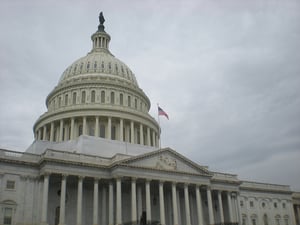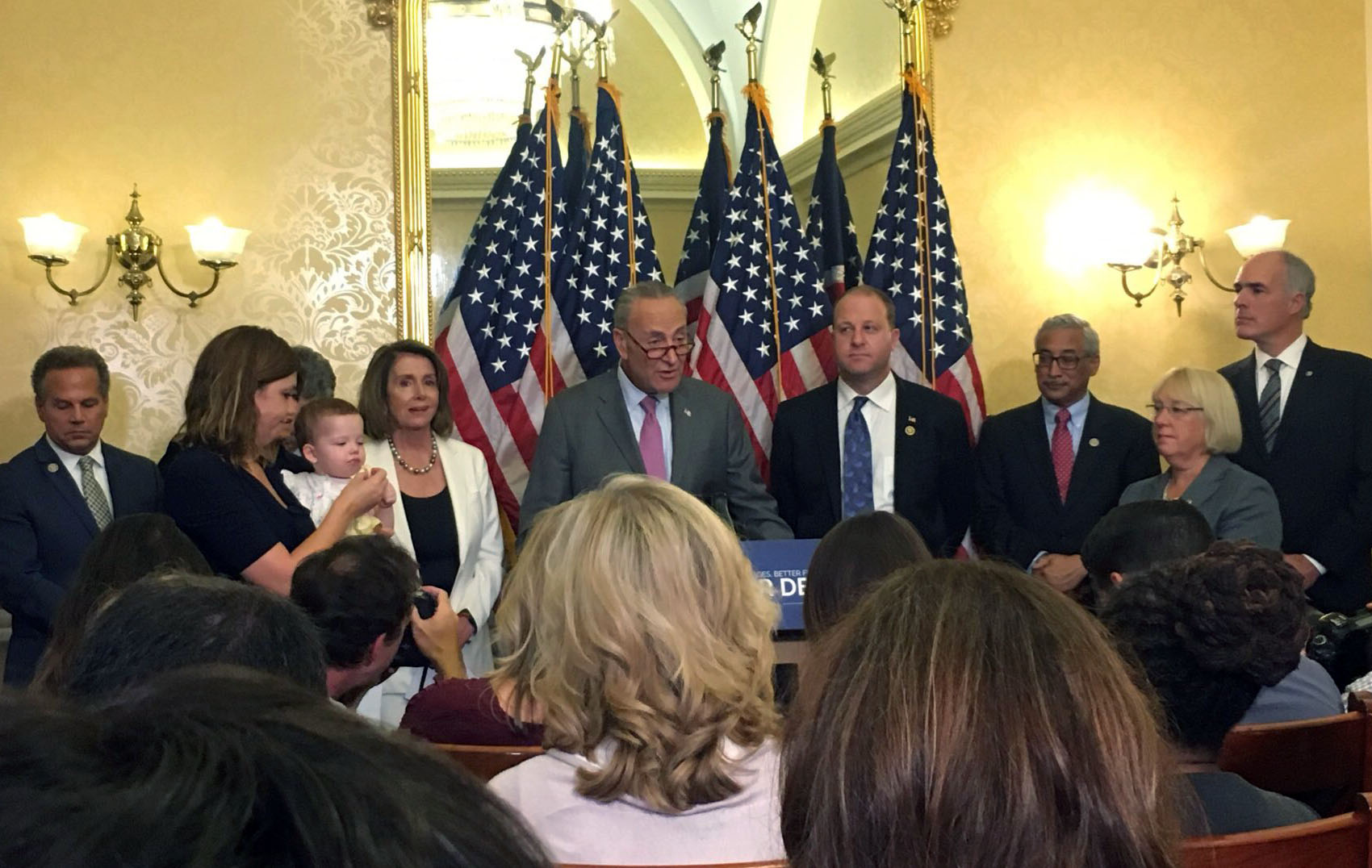 The bi-partisan Strong Start for America’s Children Act of 2015, was introduced today by Senator Patty Murray (D-WA), and Congressmen Bobby Scott (D-VA), and Richard Hanna (R-NY).
The bi-partisan Strong Start for America’s Children Act of 2015, was introduced today by Senator Patty Murray (D-WA), and Congressmen Bobby Scott (D-VA), and Richard Hanna (R-NY).
Millions of young children from low-and moderate-income families lack access to high-quality, affordable preschool programs. Research has proven that children who attend these programs are more likely to graduate from high school and succeed in their adult lives. The Strong Start for America’s Children Act proposes a 10-year Federal-state partnership to increase access and expand quality early learning opportunities for children ages birth to five.
The legislation includes four key sections: Prekindergarten Access, Early Learning Quality Partnerships, Children with Disabilities, and the Maternal, Infant, and Early Childhood Home Visiting Program.
To help understand how the legislation would impact different areas of the early childhood landscape, the following summarizes each section and its implications.
Prekindergarten Access
The legislation would fund preschool for four-year old children from families earning below 200% of the Federal Poverty Line (FPL), and encourage states to spend their own funds to support preschool for young children with family incomes above that income level.
Some of the highlights include:
- Requiring alignment of early learning standards with the State’s K-12 system that are “developmentally-appropriate, and culturally and linguistically appropriate and address all the domains of school-readiness.”
- Mixed-delivery eligibility for grants to ensure that states have the maximum flexibility in determining how the preschool grants could be administered to best fit their communities.
- Requiring establishment of a State Early Childhood Education and Care Council, where it doesn’t currently exist.
- Improving coordination and participation with other federally-funded early childhood programs including, CCDBG, IDEA part C, and MIECHV.
- Implementing performance measures and targets designed to increase school readiness, quality programs available, and children in those programs.
- 10-year Match requirement from states, transitioning from 10% in the first year, to an equal share of the federal amount in the program’s eighth and following years. States do have options to participate in a reduce match rate if they qualify.
- Prekindergarten Development Grants – For states not currently eligible for the formulaic preschool grants (described above), states could receive grants to help increase their ability to build the infrastructure and workforce and instill quality measures necessary to qualify for the federal formulaic prekindergarten grants in future years.
- The Department of Health and Human Services would be tasked with developing a process for converting Head Start programs (that currently serve four-year olds) to Early Head Start programs serving three-year olds and infants/toddlers.
Early Learning Quality Partnerships
The legislation would fund the establishment and/or expansion of partnerships between Early Head Start programs and child care providers to help raise the quality of “coordinated, comprehensive services for infants and toddlers and children through age three.”
Some of the highlights include:
- $1.4 billion in competitive grants for Early Head Start programs to partner with center-based or family child care programs, particularly those that receive federal support through CCDBG and agree to meet Early Head Start program performance standards.
- Priority of grants given to applicants that create “strong” alignment with MIECHV, CCDBG, and state-funded programs to develop comprehensive birth-to-school services for families.
- Early Head Start programs receiving grants under this initiative would enter into a “contractual relationship” with child care providers to:
- Expand center-based or family child care programs through financial support.
- Provide training, technical assistance, and support to provider to meet higher quality measures.
- Blend funds with CCDBG to develop “high-quality child care, for a full-day” that meets the Early Head Start standards.
Children With Disabilities
The bill amends the Individuals with Disabilities Act by increasing funding for infants and toddlers with disabilities and preschool grants for children with disabilities.
Maternal, Infant, and Early Childhood Home Visiting Program
The legislation would provide a “Sense of the Senate” and a “Sense of the House of the Representatives” that the MIECHV program has shown significant progress in the improving the development of children from low-income families. A “Sense of the Congress (or of each chamber)” is simply the formal expression of opinion about subjects of current national interest. In other words, while the rest of the legislation would develop, implement, or expand existing programs, this section would clarify the belief of the respective chambers that the MIECHV program has seen significant success in its work and that the chambers believe that Congress should continue to provide the resources necessary for the program.
MIECHV is currently funded through March 31, 2017.
Click here to read more about the legislation.





